#Stacy Schiff
Explore tagged Tumblr posts
Text
Witches could be muttering, contentious malcontents or inexplicably strong and unaccountably smart. They could commit the capital offense of having more wit than their neighbors, as a minister said of the third Massachusetts woman hanged for witchcraft, in 1656.
The Witches: Salem, 1692, Stacy Schiff
4 notes
·
View notes
Text
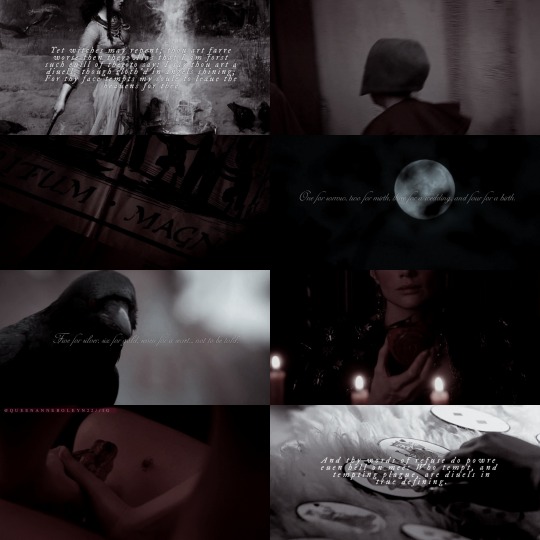
"America’s tiny reign of terror, Salem represents one of the rare moments in our enlightened past when the candles are knocked out and everyone seems to be groping about in the dark, the place where all good stories begin. At a time of shuddering devastation, they all stepped in as the dragon-slayers. Witchcraft tied up loose ends, accounting for the arbitrary, the eerie, and the unneighborly.
The sky over New England was crow black, pitch-black, Bible black, so black it could be difficult at night to keep to the path, so black that a line of trees might freely migrate to another location or that you might find yourself pursued after nightfall by a rabid black hog, leaving you to crawl home, bloody and disoriented, on all fours.
Salem is in part a story of what happens when a set of unanswerable questions meets a set of unquestioned answers. Although, the witch hunt stands as a cobwebbed, crowd-sourced cautionary tale, a reminder that—as a minister at odds with the crisis noted—extreme right can blunder into extreme wrong." - Stacy Schiff, The Witches: Salem, 1692
#Stacy Schiff#witches#witches in history#historyedit#perioddramaedit#history#perioddramasource#periodedit#salem witch trials#salem witches#salem#salemedit#17th century#witch trials#witchcraft#witchcore#witchblr#witch aesthetic#witches history#american history#new england#halloween#samhain#witchesedit#mary sibley#tituba#witches of salem#women of history#women in history#historical figures
41 notes
·
View notes
Text


crow black sky/getting lost in the woods/entering a dream-
"The sky over New England was crow black, pitch-black, Bible black, so black it could be difficult to keep to the path, so black that a line of trees might freely migrate to another location." Stacy Schiff, The Witches
3 notes
·
View notes
Text
I've finished Cleopatra: A Life

#mygod that's what directors of the new Cleopatra movie should have read#stacy schiff#it's a rare case when a history book makes me feel feelings
4 notes
·
View notes
Text
Let’s talk about Samuel Adams, Father of the American Revolution
Stacy Schiff published an acclaimed biography last year (2022), although it’s certainly not “a revelatory biography from a Pulitzer Prize-winner about the most essential Founding Father—the one who stood behind the change in thinking that produced the American Revolution.” IOW, it’s not a work of scholarship, and I don’t recall a discussion of the “change in thinking” (what does that mean?) that Adams supposedly inspired.
This is definitely a hagiography, but with the focus on the Nation-state builders, it’s good to see some focus on the “original” fighters for liberty. Samuel Adams, at various times, gets thrown back in the bin when it’s deemed that we shouldn’t be talking about people working to overthrow the government - see popular historian take on Lincoln masterfully shifting the focus of the American founding from the resistance fighters and revolutionary firebrands (the folks the early 19th century THOUGHT of as the Founders) to the architects of the American state, a shift that has stayed with us because it was deemed not a good to champion challenging the government (though Schiff herself is a bit all over the place about respect for Adams at the end and immediately after his lifetime). But Samuel Adams is the RIGHT kind of trouble-maker, which Schiff describes from the very beginning - “moral,” “principled, “humble.” Ah, for the day when one doesn’t need to meet the definition of a moral paragon to be acclaimed in American history. I realize I’ve just written to go read this book, and then stated that books like this are of limited value, but my point is it does have valuable information, but be aware of the undercurrents in this approach.
Schiff’s prose is appealing, and she tells the real story of Paul Revere better than I’ve seen it anywhere, so the book may be worth it for that alone. But like all popular biographies of this type, beware the lack of context.
Petty point 1.
First, what’s with the makeover on these guys? This guy:

THIS GUY:
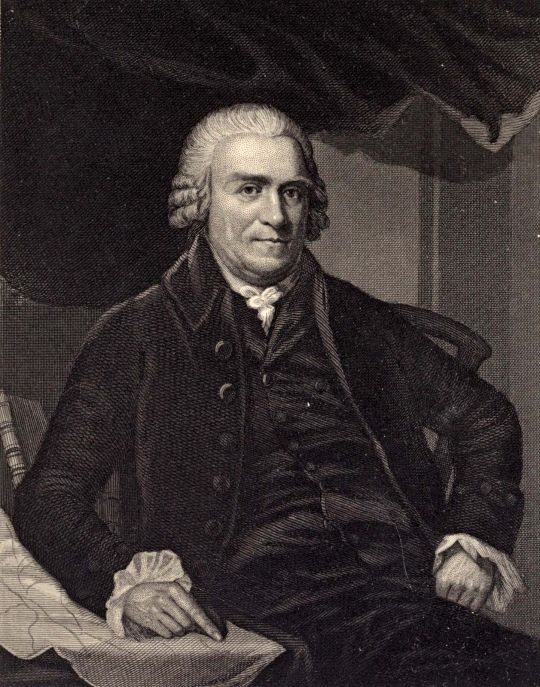
Becomes THIS GUY??!!
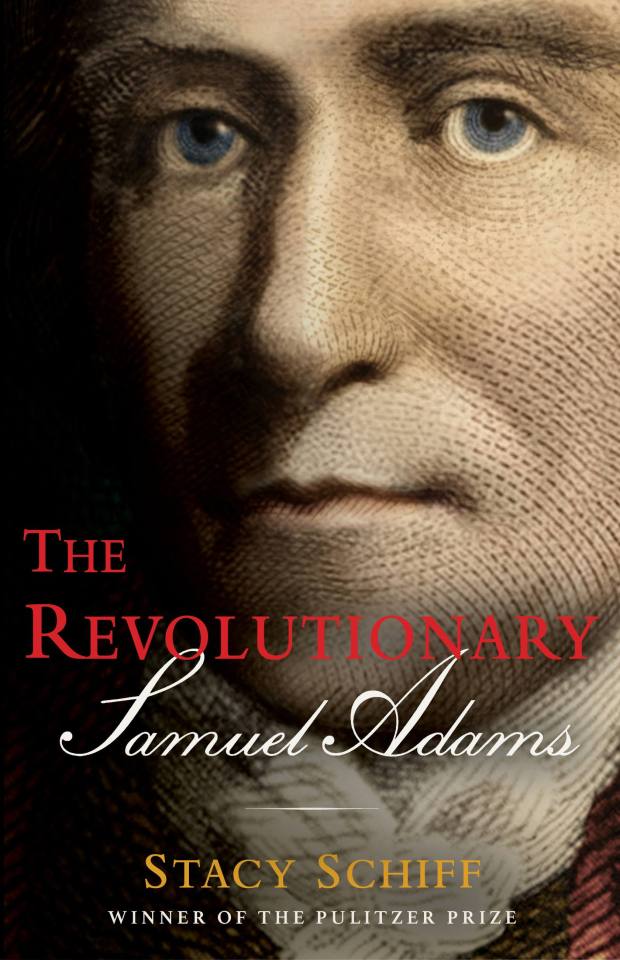
I complained about this with Alexander Hamilton, too.
(And I got distracted by this picture of James Watt, as he seems to be a model for some of this re-working.)
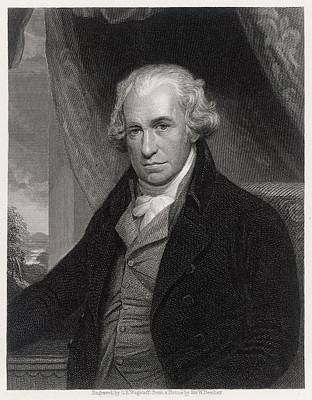
Petty point 2.
The back author blurb is a long paragraph praising the book by Ron Chernow, so I should probably have thrown this book in the trash. "A glorious book that is as entertaining as it is vitally important.” —Ron Chernow. Why is it vitally important? I still don’t know.
Real point 3.
Adams deliberately destroyed a lot of his correspondence - folks really did want to kill him and issued posters with a ransom so that the Tories could hang him, and took to the grave the stories of lots of events about the American revolution, “Dryly he noted that some individuals enjoyed every political gift except that of discretion.”
Petty point 4.
The hardcover has deckled pages, which makes it really hard to find the picture sections (it has two).
Petty point 5.
To avoid citing in-text, Schiff’s end notes reference the phrase and then provides the citation. While I understand stylists like to do this for readability of non-fiction for a general audience, it also makes it hard to determine an actual fact/reference from stuff the author just pulled out of their ass. I don’t want to flip back and forth to figure out whether you’re making something up.
Real point 6.
Not petty, but grim. I’m about to delve into women and maternity again, so these numbers recall the 17th century admonishment to women that with pregnancy, death awaits you. Elizabeth Checkley, Adams’s first wife, gave birth to six children, of whom only two survived past the age of 2. She likely died of complications from her last childbirth. She was the tenth child that predeceased her own father. Adams had 11 siblings, of whom only three survived their own father.
Petty point 7.
Every description and scene with John Hancock is petty. “The pomp and retinue of an Eastern prince,” Hancock would revel in glory as he did in frivolity,” “thin-skinned,” Hilarious.
Petty point 8.
Schiff making stuff up about the use of “esquire.”
Petty point 9.
“The portraitists arrived only after he had gone gray; Boston was, however, a fair-haired city, and the coloring suggests he had been a blond youth.” Um, what?
Real point 10.
The aversion to discussing cultural/religious matters in these communities. Schiff points out the high literacy of Boston, but makes no mention of what that can be attributed to. Adams is pious, and a Calvinist, and no discussion of what that means. “It is impossible with Adams to determine where piety ended and politics began; the watermark of Puritanism shined through everything he wrote.” Well, what does it mean, and what do you mean by that comment, Schiff? Adams’s first wife was a pastor’s daughter, but don’t look to any further explanation from Schiff about any of what that could mean. Don’t look to her to provide any explanation of the Adams quote I provide below, either.
Real point 11.
Schiff reminded me that Massachusetts only barely ratified the Constitution; Adams was one of those who in the end supported it, but was hesitant to ever again be under a national government. And yet he was a Lt. Gov, but his career was clearly in decline. Schiff treats this topic as if it’s baffling - well, maybe the shifts in national politics may explain it? Changes in Boston commercial and political interests? But we already know that popular biographies don’t have time for stuff like that.
Finally, a quote from Samuel Adams:
“The truly virtuous man and real patriot is satisfied with the approbation of the wise and discerning; he rejoices in the contemplation of the purity of his intentions, and waits in humble hope for the plaudit of his final judge.”
3 notes
·
View notes
Text
Lines up with what I know about Cicero.
““He [Cicero] needed no further reason to dislike Cleopatra: intelligent women who had better libraries than he did offended him on three counts.””
— –Stacy Schiff, Cleopatra: a Life
2K notes
·
View notes
Text
The Sam Adams Centennial
You wanna me to steal-a this picsh? A viaduct, hah? Why a duck, why-a no chicken? The above caption is more of a Columbus routine, but I couldn’t help it, the pointing finger and the limp, rolled up documents remind me of Chico Marx in The Cocoanuts (1929) and that’s about as close to the usual themes of this blog as I’m going to get. Today is the 300th birthday of Samuel Adams (1722-1803) —…

View On WordPress
#American Revolution#beer#book#Founding Father#leader#Revolutionary War#Sam Adams#Samuel Adams#Sons of Liberty#Stacy Schiff
0 notes
Text
0 notes
Text
"Everything in American affairs happens contrary to probability."
– Thomas Hutchinson, 1779.
#america#history#probability#thomas hutchinson#american history#1779#quote#as quoted by stacy schiff
3 notes
·
View notes
Text
acknowledging that the history is horrible and all, i still think that one of the most whack ass things i’ve ever read about europe was the following:
1. in britain, people convicted of witchcraft mostly were hanged
2. in france, people convicted of witchcraft mostly were burned at the stake
HOWEVER: in the channel islands, geographically & culturally right between britain & france, people weren’t sure which nation’s witch murder method to use, so they would hang people and then burn them, just to reeeeally cover their bases
#source: stacy schiff ‘the witches’ on the 1692 salem witchcraft trials#don’t have the exact page on me but its bookmarked hmu if u want it#witchcraft#history
5 notes
·
View notes
Text
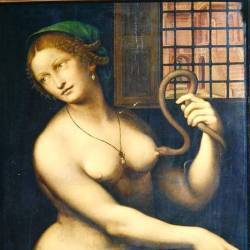
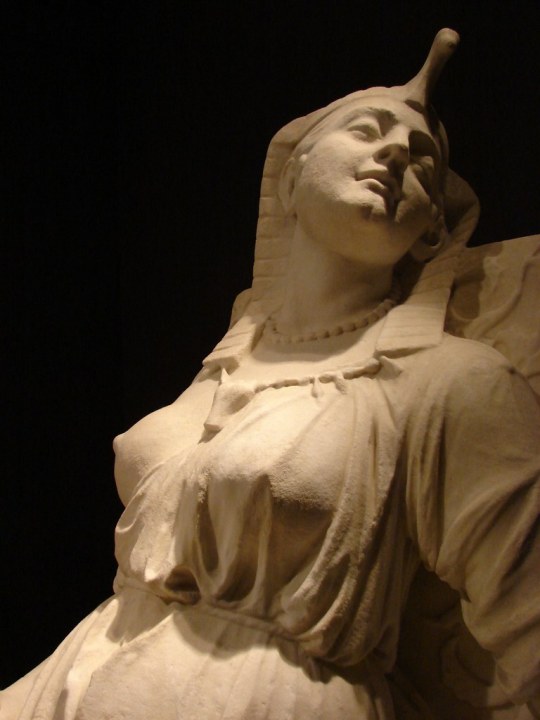
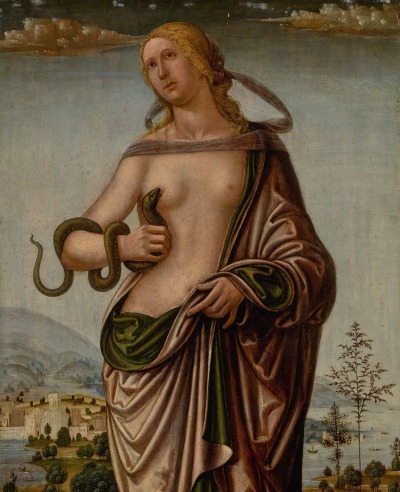
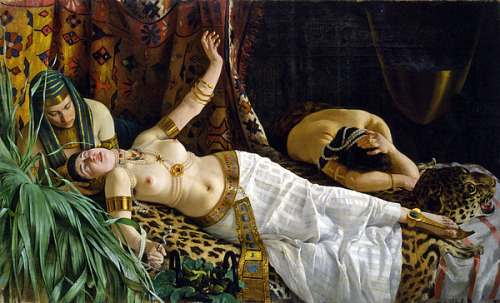

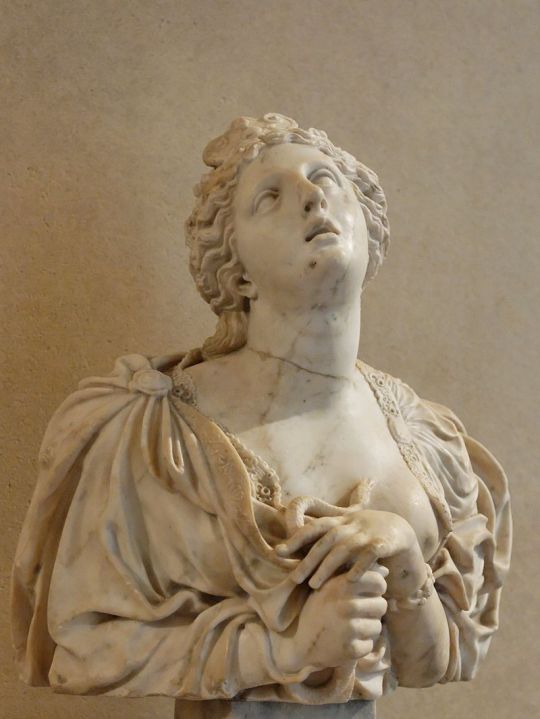
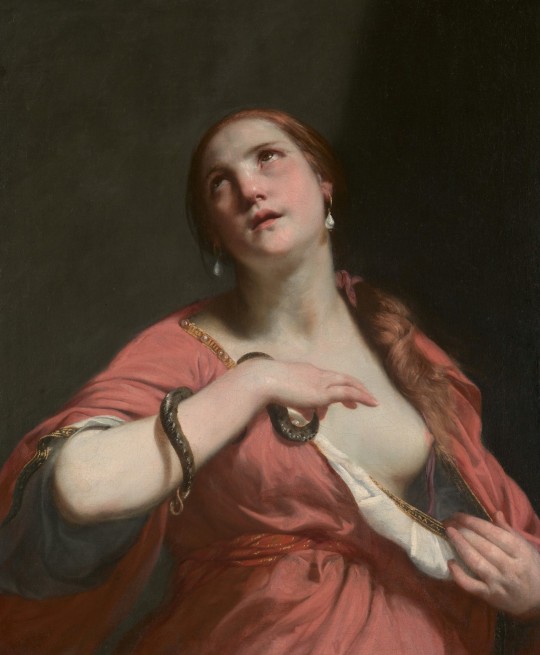
When most people think of the Death of Cleopatra, they think of something like the above pictures. Cleopatra lying on a couch, or standing there clutching a snake to her exposed breast. Or, as in some of the above cases, with the fabled serpent biting directly on to her nipple. She is almost always nude or nearly so, practically inviting everyone to gaze on her body as she lies there in her death throes. She is frequently delicately pulling her gown down to give the viewer a perfect view of her breasts. Often her equally unclothed handmaidens are falling over her in their own death throes, or gesturing dramatically to better showcase their nudity. There are also usually several other people portrayed there as well, staring down at the nude, or nearly so, Queen’s corpse.
It has been, and will likely continue to be, a popular theme in art to depict her that way. It used to be a titillating thing, an excuse to paint a beautiful nude/semi nude woman. She’s been immortalized as such in sculpture, paintings, wax figures, and everything in between.
This image of her though, is a myth. Pure and simple.
Stacy Schiff, the author of “Cleopatra: A Life” describes her death like so:
Cleopatra lay on a golden couch, probably an Egyptian-style bed with lion paws for legs and lion heads at its corners. Majestically and meticulously arrayed in “her most beautiful apparel,” she gripped in her hands the crook and flail. She was perfectly composed and completely dead, Iras very nearly so at her feet. Lurching and heavy-headed, almost unable to stand, Charmion was clumsily attempting to make right the diadem around Cleopatra’s forehead. Angrily one of Octavian’s men exploded: “A fine deed this, Charmion!” She had just the energy to offer a parting shot. With a tartness that would have made her mistress proud, she managed, ”It is indeed most fine, and befitting the descendant of so many kings,” before collapsing in a heap, at her queen’s side. Charmion’s was an epitaph no one could dispute. (Nor could it be improved upon. Shakespeare used it verbatim.)
Cleopatra went to her death as she’d lived her entire adult life, as the Queen of Egypt. She had her royal robes and ornaments on, and was thus fully dressed. She knew full well Octavian and his men were going to burst in on her, were going to find her and her ladies there dead. There is no chance she was going to be lying there undressed when a room-full of strange men were going to be looking at her. Cleopatra made sure she went first, so that her ladies could arrange her so nothing inappropriate would be seen. As far as we know, the only ones there at the time of her death were her and her two handmaidens, as they had barricaded themselves inside her mausoleum.
It’s likely all the nudity also stems from propaganda spread by Octavian both during her life and after her death, painting her as a whore and a seductress. Of course she would be naked she was the decadent Eastern Queen who seduced men with her witchcraft! It’s just one of the many, and increasingly ridiculous, misconceptions that’s been spread about her since her death and one that people should realize was certainly not true. The snake is now widely regarded by most scholars as a myth as well, since it’s far more likely she took some kind of poison to end her life instead.
#cleopatra#cleopatra vii#ancient egypt#ptolemiac dynasty#charmian#iras#ancient rome#william shakespeare#long live the queue#I will PUNCH whoever uses illustrations of her with her breasts out/naked#It is SO old and so tired and anyone with half a brain knows that's not accurate#READ A HISTORY BOOK YOU MORONS
62 notes
·
View notes
Text

On February 25, Parris and his wife left Salem under teeming rain. In their absence a close neighbor paid a call. The Parrises presumably asked Mary Sibley to look in on Abigail and Betty, roaring now for over a month. The mother of five, Mary Sibley was six months pregnant. Among the wealthier couples in the community, she and her cooper husband were pillars of the church; Samuel Sibley stepped in when an estate needed to be settled or a bond guaranteed. His wife felt comfortable in the Parris household.
Less comfortable with the pace at which her minister resolved the mystery there, she arranged a furtive experiment. The question was no longer what afflicted the children but who; Sibley determined to catch a witch. At her instruction, John, the Parrises’ Indian slave, mixed the girls’ urine into a rye-flour cake, baked amid the embers on the hearth. Sibley then fed the concoction to the family dog. There was some fogginess about how thecountermagic worked—by drawing the witch to the animal, by transferring the spell to it, or by scalding the witch—but the old English recipe could be trusted to reveal the guilty party." - Stacy Schiff, The witches
#perioddramaedit#mary sibley#marysibleyedit#janet montgomery#witches in history#salem witches#salemedit#salem wgna#salem witch trials#salem#witches#witchcore#janetmontgomeryedit#stacy schiff#history#american history#historical figures#historyedit#17th century#tituba#graphic#period drama#perioddramasource#periodedit#userbbelcher#userrobin#userthing#userstream#historicwomendaily
30 notes
·
View notes
Text
The Antonian Reading List
Mark Antony: A Life by Patricia Southern (Highly recommended!)
Mark Antony: A Biography by Eleanor Goltz Huzar (Highly recommended!)
The Life and Times of Marc Antony by Arthur Weigall (Recommended)
Marc Antony: His Life and Times by Allan Roberts (Recommended)
Marc Antony by Mary Kittredge
Antony & Cleopatra by Patricia Southern
Antony & Cleopatra by Adrian Goldsworthy (By far the most negative book on Antony by a modern historian, the Cleopatra portion is better)
Mark Antony: A Plain Blunt Man by Paolo de Ruggiero (Recommended)
Mark Antony and Popular Culture: Masculinity and the Construction of an Icon by Rachael Kelly
Mark Antony's Heroes: How the Third Gallica Legion Saved an Apostle and Created an Emperor by Stephen Dando-Collins
A Noble Ruin: Mark Antony, Civil War and the Collapse of the Roman Republic by W. Jeffrey Tatum (Highly recommend!)
Mark Antony & Cleopatra: Cleopatra's Proxy War to Conquer Rome & Restore the Empire of the Greeks by Martin Armstrong
Actium and Augustus: The Politics and Emotions of Civil War by Robert Alan Gurval
The Roman Revolution by Ronald Syme (Recommended)
Octavian, Antony and Cleopatra by W. W. Tarn
Fulvia: Playing for Power at the End of the Roman Republic by Celia E. Schultz
Cleopatra: Last Queen of Egypt by Joyce Tyldesley (Highly Recommended!)
Cleopatra by Michael Grant (Highly Recommanded!)
Cleopatra: A Life by Stacy Schiff (Highly Recommended!)
Cleopatra - A Biography by D. Roller
Cleopatra and Antony by Diana Preston
Cleopatra by Alberto Angela (Recommended)
Cleopatra by Jacob Abbott
Cleopatra the Great by Joann Fletcher
Cleopatra and Egypt by Sally-Ann Ashton
Cleopatra and Rome by Diana E. E. Kleiner
Cleopatra Her History Her Myth by Francine Prose
Cleopatra Histories, Dreams, and Distortions by Lucy Hughes Hallett (Recommended)
Cleopatra’s Daughter Egyptian Princess by Jane Draycott
The Storm Before the Storm by Mike Duncan
SPQR: A History of Ancient Rome by Mary Beard (Good for beginners)
The Last Assassin: The Hunt for the Killers of Julius Caesar by Peter Stothard
Robicon by Tom Holland
Alesia 52 BC: The final struggle for Gaul (Campaign) by Nic Fields
Actium 31 BC: Downfall of Antony and Cleopatra (Campaign) by Si Sheppard
Pharsalus 48 BC: Caesar and Pompey – Clash of the Titans (Campaign) by Si Sheppard
Philippi 42 BC: The death of the Roman Republic (Campaign) by Si Sheppard
Mutina 43 BC: Mark Antony's struggle for survival (Campaign) by Nic Fields
The War That Made the Roman Empire: Antony, Cleopatra, and Octavian at Actium by Barry Strauss
The Battle of Actium 31 BC: War for the World by Lee Fratantuono
Rome and Parthia: Empires at War: Ventidius, Antony and the Second Romano-Parthian War, 40–20 BC by Gareth C Sampson
Rivalling Rome: Parthian Coins and Culture by Vesta Curtis
Classical sources:
Plutarch’s Lives
Cicero: Philippics, Ad Brutum, Ad Familiares
Appian, The Civil Wars
Dio Cassius, The Roman History
Suetonius, The Twelve Caesars
Flavius Josephus, The Jewish War
Livy, The Early History of Rome
Tacitus, Annals and Histories
Friction:
The Tragedy of Julius Caesar by William Shakespeare
The Tragedy of Antony and Cleopatra by Willian Shakespeare
All For Love or The World Well Lost by John Dryden
The Siren and the Roman – A Tragedy by Lucyl
Caesar and Cleopatra by George Berbard Shaw
Cleopatra (play) by Sardou
Antony by Allan Massie
I, Claudius by Robert Graves
I, Cleopatra by William Bostock
Cleopatra by H. Rider Haggard
Cleopatra by Georg Ebers
Kleopatra (Vol I & II) by Karen Essex
Last Days with Cleopatra by Jack Lindsay
The Memoirs of Cleopatra by Margaret George
When We Were Gods by Colin Falconer
The Masters of Rome series by Colleen McCullough
Caesar's Soldier: Mark Antony Book I by Alex Gough (Ongoing series)
The Antonius Trilogy by Brook Allen
The Last Pharaoh series by Jay Penner
Throne of Isis by Juith Tarr
Hand of Isis by Jo Graham
Woman of Egypt by Kevin Methews
The Ides of Blood 01-06 (Comics)
Terror - Antonius En Cleopatra (Erotic yet pure love, Dutch comics)
Cleopatra - Geschiedenisstrip (Dutch comics)
Les Grands Personnages de l Histoire en Bandes Dessinees – Marc Antonie (French comics)
Les Grands Personnages de l Histoire en Bandes Dessinees – Cleopatre (French comics)
Les Grands Personnages de l Histoire en Bandes Dessinees – Julius Caesar (French comics)
Cléopâtre (French Manga)
Ils Ont Fait L'histoire - Cléopâtre (French Graphic Novel)
#mark antony#marc antony#marcus antonius#cleopatra#cleopatra vii#antony and cleopatra#rome#ancient rome#roman history#roman republic#roman empire#books#book recommendations#reading list#to read list#history
120 notes
·
View notes
Text
It seems that Cleopatra treated Antony as a grandmother treats her schoolchild grandson who came for the holidays, and now the same schoolboy comes to Rome, which he openly ignored all these idle months. He celebrated his forty-third birthday in Alexandria, and at the same time he was remembered by the townspeople mainly for his pranks and antics, which is ridiculous because from the very beginning, the accusation of Mark Antony against Octavian was “snotty boy” (for a Roman there was no worse insult: it infuriated Octavian so much that he would then pass a bill in the Senate formally forbidding anyone from calling him that).
(c) "Cleopatra: A Life"
2 notes
·
View notes
Note
Hi kief, I hope you're well. I was wondering if you have some non-fiction recommendations as I'm going on a long trip soon & wanted to put some on my e-reader?
I really liked the memoir series Call the Midwife was based on, I read all three a couple years ago. I always recommend whenever I can The Second Shift by Arlie Hochschild. I read last year The Witches: Salem, 1692 by Stacy Schiff - it wasn't really easy reading, it's long and her prose is so ostentatious sometimes, but I enjoyed the challenge (like literally, I was looking up words constantly). All About Love by bell hooks is a classic, it's a good book if you want to ponder your own thoughts and feelings about love. And my dark horse: Stephen King's On Writing, a book that changed my perspective on writing and reading long ago, and is a very fast and easy read. Okay, have fun! :)
21 notes
·
View notes
Text
People I'd Like to Get to Know Better meme
Thank you for the tag, @tipsypixel-sims! :)
Last song: The Kicker - Xana
Favorite color: Pink. Or black. Or green, or… (I wear a lot of black, but like cups/bedding/etc that's pink. And green is just a nice color.)
Last movie: …I have no idea. It might be Dune Part II.
Last book: Last book finished? "The Monster Baru Cormorant". Currently I'm reading "The Tyrant Baru Cormorant", Stacy Schiff's Cleopatra biography, and Shari Franke's autobiography.
Sweet/spicy/savory: Usually sweet, right now savory.
Last googled DuckDuckGo'd: "sims 2 skittlebox". My elaborate way of trying to find a lip set I remembered and wanted to redownload was to go find the default I once had that used it, find a replacement for the dead link, then finally get to the actual lip set. (The set is Zombiejill's Lovesong, fyi.)
Current obsession: my game I guess, lol. Most recent obsession was Breath of the Wild, but I don't have a good hyperfixation going at the moment besides TS2.
No tags today because I really don't know who's just done this lately and don't want to be annoying. :') I think it started going around just before I burst out of hiatus. Next time, promise!
#nonsims#meme#the Baru Cormorant books go crazy hard#I mean the WORLDBUILDING??? it's so impressive#if you like Dune you should give the first book a try
9 notes
·
View notes